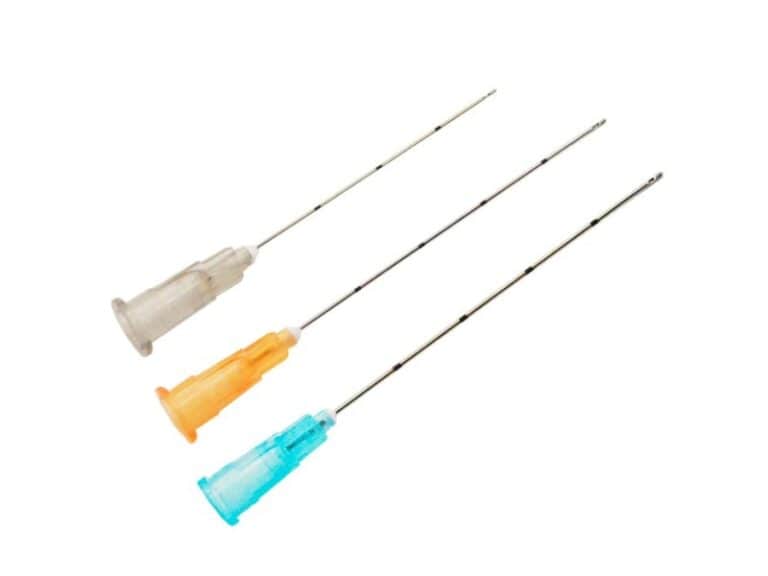Ketogenic Diet: Impact on Liposuction Results and Recovery
Key Takeaways
- When combined with appropriate postoperative management, it has the potential to greatly improve liposuction outcomes.
- The diet, heavily promoted by celebrities and influencers, is high in fats and low in carbohydrates. This strategy helps suppress appetite and lower inflammation, speeding healing post-liposuction.
- Since achieving ketosis has been shown to increase skin retraction and overall healing, following a ketogenic diet could be a valuable dietary strategy after surgery.
- If you’re on a ketogenic diet, be on the lookout for nutritional deficiencies. Don’t forget to focus on getting those key nutrients!
- It is important for healthcare professionals to help patients make dietary changes to improve recovery and prevent the reversal of liposuction benefits.
- Long-term adherence to a ketogenic diet can support sustained weight management and improve metabolic health, contributing to lasting liposuction outcomes.
Did you know that 60% of liposuction patients research diet to achieve optimal results? The ketogenic diet is the perfect way to lose additional fat and keep your muscle after the procedure.
It can increase recovery and improve body composition. The potential benefits of combining keto with liposuction are promising, but be cautious.
Watch for risks, such as nutrient deficiencies. The better you understand how diet and exercise affect your health, the better equipped you are to make informed, healthy choices.
Learn how keto can help you on your post-liposuction wellness journey.
What Is the Ketogenic Diet
The ketogenic diet regimen is a low-carbohydrate, high-fat diet designed to bring about a metabolic state known as ketosis. During this process, the body begins to use fat for fuel rather than carbohydrates, effectively reducing its carbohydrate intake. By minimizing glucose, the body shifts its primary energy source to fat, promoting fat accumulation as a means of energy utilization.
In a traditional ketogenic diet, fats dominate the daily food intake, comprising 70-80%. Proteins follow at 15-25%, while carbohydrates are strictly limited to a mere 5-10%. This carbohydrate restriction encourages the body to rely on fat stores for energy, facilitating significant weight loss and improved body composition.
Though this diet is strict, it offers numerous health benefits. Its anti-inflammatory effects can be particularly advantageous for individuals with lipedema, a painful condition characterized by excessive fat cell growth. By adopting a low calorie ketogenic diet, these individuals may experience relief from symptoms.
Ketones such as beta-hydroxybutyrate (BHB) have been shown to directly prevent the activation of the NLRP3 inflammasome. This process further supports the body’s natural anti-inflammatory response. Studies, including one from the journal Cell Metabolism, highlight the anti-inflammatory properties of ketones, suggesting improved overall health for those on the diet.
For individuals suffering from lipedema, the ketogenic diet can be a valuable nutritional treatment, especially when combined with therapies like carboxytherapy. This specialized diet complements advanced liposuction techniques, including tumescent and ultrasound-assisted methods, providing safe and effective options for managing fat tissue accumulation.
Liposuction and Body Composition
Beyond genetics, liposuction is a mainstay of fat removal and body contouring. This means it can target those stubborn spots where fat tends to collect, resulting in a more contoured shape. Though most people imagine liposuction as a miracle solution, it is really about improving your body proportions. In fact, various weight loss options, including surgical procedures like liposuction, can enhance overall body aesthetics.
A 35-year-old man showed a remarkable appearance after VASER liposuction. His excess weight went from 120 to 49 pounds, and his BMI went from 40 to 31.5, moving him out of the obesity range. This transformation demonstrates the contour improvement possible with liposuction, both in enhancing body contours and removing excess fat, which is often a challenge for obese individuals.
It is crucial to maintain a healthy lifestyle after getting liposuction. This includes implementing customized nutrition plans to promote healing and maintain long-term changes. One effective strategy is adopting a ketogenic diet regimen, characterized by high fat, moderate protein, and low carbohydrate intake, which can support recovery.
The ketogenic diet also helps to decrease visceral adipose tissue, an important factor in maintaining a healthy weight. Patients are instructed to eat 15% over their daily energy requirements to aid recovery and prevent fat accumulation.
Patients undergoing liposuction should transition to a ketogenic diet in a stepwise fashion. Allow your body a minimum of one to two weeks to adapt to the difference. The target for protein intake should be a little higher than that—15% to 25% of daily calories, aligning with the principles of a low carbohydrate ketogenic diet.
In addition, ensuring an appropriate caloric surplus greatly aids in muscle recovery and growth, further underlining the significance of a proper diet. In the case of liposuction, the best results usually require the combination of the surgery and a healthy new lifestyle, including adherence to effective nutritional strategies such as the ketogenic diet.
How Ketogenic Diet Affects Fat Loss
When it comes to effective weight management, the ketogenic diet shines the brightest by encouraging your body to burn fat through carbohydrate restriction. By severely limiting carbohydrate intake, the body is forced to transition from using glucose as its primary energy source to burning fat for fuel, a process known as nutritional ketosis. This metabolic shift triggers a series of physiological adaptations that significantly promote fat loss.
Your liver then converts that fat into ketones, which ramp up the body’s natural fat-burning processes. This not only encourages fat loss but also spares muscle. A recent study on athletes indicates they gained the same amount of muscle as their non-keto counterparts while achieving substantial weight loss.
1. Ketogenic Diet and Metabolism
The ketogenic diet has a profound effect on metabolism, including both the metabolic rate and energy expenditure. When carbs are in short supply, the body increases fat oxidation. It also uses up your stored fat for fuel, leading to extreme fat loss.
Ketones are central to this, serving both as an alternative energy source and metabolic process booster. Better insulin sensitivity is another major benefit, as the ketogenic diet regulates blood sugar levels, minimizing fat storage. Research conducted on bodybuilders and other athletes have proven that this diet encourages fat loss, all while preserving muscle strength.
For anyone seeking to improve their metabolic health, the ketogenic diet represents a great opportunity.
2. Dietary Impact on Fat Cells
One of the primary effects of the ketogenic diet on fat loss concerns what happens to fat cells themselves. Through various mechanisms, it changes the body’s energy balance and hormonal environment. This metabolic shift promotes the use of stored fat for energy, leading to better body composition.
The importance of healthy fats is incredibly important in this process, promoting overall fat cell health and function. Changes in adipose tissue metabolism also help promote a negative fat mass balance. Studies suggest that people on a ketogenic diet lose substantial amounts of fat and develop better body composition after two or three months.
This emphasizes the diet’s effectiveness at targeting fat cells directly.
3. Ketosis and Liposuction Results
Merging the benefits of ketosis and liposuction provides excellent results in body contouring. Being in a state of ketosis further increases the results of liposuction with improved skin retraction and body contouring.
The presence of ketones also helps healing and recovery post-surgery, promoting tissue repair and decreasing inflammation. Research shows that a ketogenic diet can keep the weight lost during liposuction off, offering lasting benefits.
This makes it a valuable nutritional strategy for anyone considering or recovering from liposuction, offering a comprehensive approach to fat reduction and body sculpting.

Benefits of Ketogenic Diet Post-Liposuction
The ketogenic diet, with its low-carb, high-fat structure, is incredibly beneficial to liposuction patients. By prioritizing sustainable weight loss, it works to preserve and even improve the results. In fact, the patient featured in one case report lost a jaw-dropping 66 pounds in only six months. They made a dramatic shift from 280 pounds to 214 pounds.
It is also an effective and safe method of achieving a lower body mass index (BMI). It decreased from 40 to 31.5, helping to keep your liposuction results around for years.
Enhanced Recovery Process
After surgery, your body needs to be in the perfect state to recover. A ketogenic diet helps do just that and can help perhaps dramatically speed up the recovery process. The consumption of healthy fats helps to decrease inflammation, something that’s often an issue right after surgery.
These fats are essential to promote healing with ketones having been proven to reduce inflammation. As a result, patients would see reduced swelling and faster overall recovery time.
Energy stability is a major benefit of a well-structured ketogenic diet, due to the steady energy provided by fats. This puts less strain on the body and enables patients to go about their daily lives without excessive tiredness. A personalized nutritional follow-up is critical in order to make sure the diet remains aligned with the ongoing needs of recovery.
Reduced Inflammation
Too much inflammation can be a major hindrance to recovery following liposuction. A ketogenic diet decreases inflammatory markers by decreasing the activation of NLRP3 inflammasome. This decrease in inflammation helps in achieving a faster recovery and also plays a major role in pain management.
The link between inflammation and post-operative pain is profound. Less inflammation usually means less pain and soreness. Additionally, improving the health of the skin through diet can make a significant impact on appearance after surgery.
Improved Energy Levels
Energy is key while your body is recovering. One of the biggest benefits of a ketogenic diet post-liposuction is having higher energy levels, an immensely important factor in recovering after surgery.
In doing so, it helps to minimize fatigue and increase energy by regulating blood sugar levels. Protein, which should constitute 15-25% of the diet, is important for keeping energy levels stable.
This is critically important, especially as increased physical activity and rehabilitation efforts are integrated into the post-liposuction lifestyle. Enhanced energy helps support these important post-procedure activities, supporting recovery and wellness.
Risks of Combining Keto with Liposuction
Nutritional Deficiencies
When you do a strict ketogenic diet, you can encounter nutritional deficiencies. Most often, those on the keto diet are deficient in critical vitamins and minerals such as potassium, magnesium, and vitamin D3. These nutrients are important for keeping energy levels up and helping your body function properly.
Missing them can be particularly troubling after liposuction, when your body requires plenty of nutrients to heal effectively. For instance, a lack of magnesium will result in muscle cramps or fatigue, not what you want when you’re in recovery mode.
To avoid those complications, it’s a good idea to be proactive and pay special attention to micronutrient supplementation. It could be helpful to collaborate with a healthcare provider to monitor your diet while you’re doing the keto portion. This will help make sure you’re getting a well-rounded intake, which is key for keeping a smooth recovery and long-term health.
Potential Health Complications
There are some serious health risks that can occur by combining a ketogenic diet with a liposuction recovery. Though rapid weight loss is desirable, if not treated with caution, the patient can develop metabolic disorders.
Your body’s metabolism may have difficulty adjusting to such drastic shifts, increasing the risk of complications such as gallstones or nutrient deficiencies. On top of that, for those people who already have health issues, in particular diabetes, the process of entering ketosis is dangerous.
This is why it’s so important to pay attention to any negative side effects, since the way the body reacts differs from individual to individual. A 35-year-old man with class III obesity was able to eliminate most major health risks with liposuction and the keto diet. That’s not the end of the story for everyone.
Meeting with a healthcare provider allows for dietary restrictions to be met and managed safely.
Monitoring and Adjustments
After having liposuction, monitoring your food consumption is essential. Regular monitoring is essential to ensure you know exactly how your body is responding to the ketogenic diet and to make adjustments as needed.
You may have more energy on a keto diet. If you start feeling bad, rethink your diet and tweak it. This is where your healthcare providers become an invaluable asset, helping you navigate your new lifestyle to improve and sustain your results.
Not only does tracking your progress help you achieve the outcomes you want, but it also helps you stay healthy along the way. Research shows that people who track what they eat are more likely to keep weight off in the long run.
Overall Health Effects After Liposuction
Your overall health effects after liposuction can be positively impacted by following a ketogenic diet. This strategy not only helps with maintaining weight, it doesn’t require weight loss to enjoy the long-term health benefits. By focusing on healthy fats, moderate protein, and low carbohydrates, individuals can experience improved metabolic health, potentially reducing obesity-related risks.
The ketogenic lifestyle also improves energy levels and promotes fat burning, both of which are important for maintaining any liposuction results long-term. This dietary shift can also improve life quality, as observed in a study where individuals reported increased satisfaction from a baseline score of 5.1 to 6.1 over several weeks.
Long-Term Weight Management
Here’s how a ketogenic diet can help you maintain weight after liposuction. This diet helps maintain weight loss, as evidenced by a significant reduction in waist and hip measurements, which were maintained over several weeks. Meal prep can help you stick with it, so get into meal prep mode.
You can also follow an online program that provides 1300 calories per day, with your macronutrients set at 30% protein, 66% fat, and 4% carbohydrates. Adding in weight-bearing activities such as walking or biking not only increases the caloric deficit, but also helps to maintain lean mass.
Changes to behavior, like maintaining a journal of food intake, help long-term loss by fostering self-awareness and responsibility.
Cardiovascular Health Considerations
The ketogenic diet supports heart health, particularly after liposuction. Healthy fats, such as those from avocados and nuts, are central to this diet and can improve cholesterol levels, reducing cardiovascular risks. Weight loss from this diet significantly impacts heart health, lowering blood pressure and improving lipid profiles.
Regular health assessments are crucial for monitoring these changes, ensuring cardiovascular benefits are maximized and maintained. These assessments help track progress and adjust dietary and lifestyle habits to align with individual health goals.
Mental and Emotional Well-being
Changing one’s diet after liposuction has substantial effects on mental health and emotional well-being. A ketogenic diet can help lift mood and improve cognitive function, giving you a jump start in mental clarity. Clinical studies have demonstrated that patients following this diet experience significantly less pain and improved quality of life.
This points to a really powerful relationship between our diet and our mental health. Social support can be key while making this transition, providing encouragement and constructive support.
Looking good in the body after liposuction can greatly enhance self-confidence. Patients are often pleased to report that they feel more self-satisfied with their physique and experience a general enhancement of their quality of life.
Conclusion
The ketogenic diet might be a good option for patients preparing for liposuction. By encouraging high fats and low carbs, the keto diet puts an emphasis on fat stores and promotes fat loss. Additionally, this diet can help improve overall liposuction results by encouraging a leaner body composition and speeding up the recovery process. To get the most benefit, take into account individual health requirements and discuss with a medical professional. Combining diet with sustainable lifestyle adjustments can provide tangible results and foster long-term health benefits. Want to learn more about how keto can help you? Consult your physician or a nutrition professional to determine if it aligns with your objectives and lifestyle. Keep in mind, little changes can make a world of difference. Learn how keto can help you maximize your liposuction experience for optimal results.
Frequently Asked Questions
What is a ketogenic diet?
A ketogenic diet, often considered a low-carb/high-fat diet, effectively promotes significant weight loss by putting the body into a metabolic state known as nutritional ketosis. In this state, fat accumulation is reduced as fat becomes the primary energy source instead of carbohydrates, making the ketogenic diet regimen popular for improved metabolic health.
How does liposuction change body composition?
Liposuction is a surgical procedure that can permanently eliminate stubborn fat deposits from specific, targeted body areas, contributing to improved body contours and proportions. While it may not significantly affect overall weight or health, it can enhance body image and self-confidence, especially for obese individuals seeking effective weight management.
Can a ketogenic diet boost fat loss after liposuction?
Yes, a ketogenic diet regimen can be instrumental in maintaining fat loss after liposuction, as it promotes the use of fat as a fuel source, leading to a lower body fat percentage. This approach is crucial for sustaining liposuction results, so consult your doctor to customize your nutritional strategy.
What benefits does a ketogenic diet offer post-liposuction?
A ketogenic diet regimen will maintain liposuction results by preventing new fat accumulation and promoting effective weight management. It can also energize your body and boost your metabolism. Be sure to consult your physician before making any dietary changes to ensure they align with your overall health goals.
Are there risks to combining a keto diet with liposuction?
Yes, experience potential risks such as nutrient deficiencies, dehydration, and electrolyte imbalances. Both liposuction and ketogenic diets can be stressful on the body. As always, when you combine various diets, you need to have a good medical dietitian supervision to manage those risks.
What are the overall health effects after liposuction?
Liposuction may improve appearance, but it does not enhance overall health. It’s certainly not a weight loss panacea. Instead, consider liposuction as a step toward a healthier lifestyle, possibly alongside a ketogenic diet regimen or other dietary approaches, with longer-term benefits, not just a quick fix. Always collaborate with your healthcare team to determine the best plan for you!
Is a ketogenic diet suitable for everyone post-surgery?
Individuals with medical conditions or dietary restrictions might require substitutes, and those considering a ketogenic diet plan should consult their healthcare team to determine the right nutritional treatment based on personal health needs.






